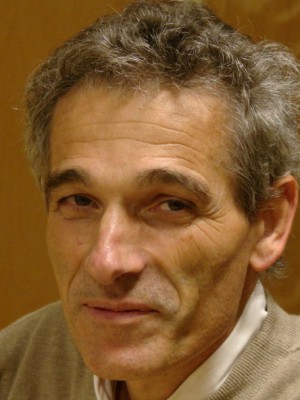abstract
Manganese-substituted 5 mol.% yttria-stabilized zirconia (5YSZ) was explored as a prospective material for protective interlayers between electrolyte and oxygen electrodes in reversible solid oxide fuel/electrolysis cells. [(ZrO2)(0.95)(Y2O3)(0.05)](1-x)[MnOy](x) (x = 0.05, 0.10 and 0.15) ceramics with cubic fluorite structure were sintered in air at 1600 degrees C. The characterization included X-ray diffraction (XRD), scanning electron microscopy (SEM)/energy dispersive spectroscopy (EDS), X-ray photoelectron spectroscopy (XPS), thermogravimetry and dilatometry in controlled atmospheres, electrical conductivity measurements, and determination of oxygen-ion transference numbers by the electromotive force (EMF) technique. Mn-substituted 5YSZ solid solutions exhibit variable oxygen nonstoichiometry with manganese cations in a mixed 2+/3+ oxidation state under oxidizing conditions. Substitution by manganese gradually increases the extent of oxygen content variation on thermal/redox cycling, chemical contribution to thermal expansion and dimensional changes on reduction. It also deteriorates oxygen-ionic conductivity and improves p-type electronic conductivity under oxidizing conditions, leading to a gradual transformation from predominantly ionic to prevailing electronic transport with increasing x. Mn2+/3+-> Mn2+ transformation under reducing atmospheres is accompanied by the suppression of electronic transport and an increase in ionic conductivity. All Mn-substituted 5YSZ ceramics are solid electrolytes under reducing conditions. Prolonged treatments in reducing atmospheres, however, promote microstructural changes at the surface of bulk ceramics and Mn exsolution. Mn-substituted 5YSZ with 0.05 <= x < 0.10 is considered the most suitable for the interlayer application, due to the best combination of relevant factors, including oxygen content variations, levels of ionic/electronic conductivity and thermochemical expansion.
subject category
Chemistry, Physical; Materials Science, Multidisciplinary; Metallurgy & Metallurgical Engineering; Physics, Applied; Physics, Condensed Matter
authors
Natoli, A; Arias-Serrano, BI; Rodriguez-Castellon, E; Zurawska, A; Frade, JR; Yaremchenko, AA
our authors
Projects
Healing of solid oxide fuel cell materials (HEALING)
Carbon-depolarized high-temperature steam electrolysis (CARBOSTEAM)
acknowledgements
PhD scholarship of A.N. is funded by the FCT (grant SFRH/BD/116853/2016). This work was supported by the projects HEALING (POCI-01-0145-FEDER-032036) and CARBOSTEAM (POCI-01-0145-FEDER-032295) funded by FEDER through COMPETE2020-Programa Operacional Competitividade e Internacionalizacao (POCI) and by national funds through FCT/MCTES, and by the project CICECO-Aveiro Institute of Materials (UIDB/50011/2020 & UIDP/50011/2020) financed by national funds through the FCT/MCTES and when appropriate co-financed by FEDER under the PT2020 Partnership Agreement. E.R.-C. thanks to project RTI2018-099668-BC22 of Ministerio de Ciencia, Innovacion y Universidades and FEDER funds. A.Z.. gratefully acknowledges financial support from the Ministry of Science and Higher Education of the Republic of Poland for Statutory Grant CPE/098/STAT-MN-AZ/20 in the Institute of Power Engineering.





